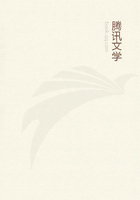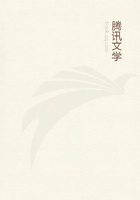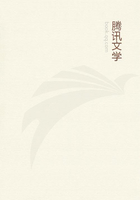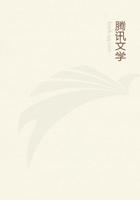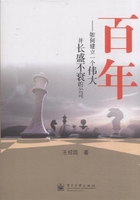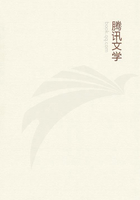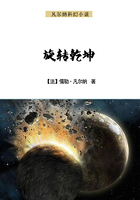What, then, precisely is Virtue, collectively and in the particular? The clearer method will be to begin with the particular, for so the common element by which all the forms hold the general name will readily appear.
The Civic Virtues, on which we have touched above, are a principle or order and beauty in us as long as we remain passing our life here: they ennoble us by setting bound and measure to our desires and to our entire sensibility, and dispelling false judgement- and this by sheer efficacy of the better, by the very setting of the bounds, by the fact that the measured is lifted outside of the sphere of the unmeasured and lawless.
And, further, these Civic Virtues- measured and ordered themselves and acting as a principle of measure to the Soul which is as Matter to their forming- are like to the measure reigning in the over-world, and they carry a trace of that Highest Good in the Supreme; for, while utter measurelessness is brute Matter and wholly outside of Likeness, any participation in Ideal-Form produces some corresponding degree of Likeness to the formless Being There.And participation goes by nearness: the Soul nearer than the body, therefore closer akin, participates more fully and shows a godlike presence, almost cheating us into the delusion that in the Soul we see God entire.
This is the way in which men of the Civic Virtues attain Likeness.
3.We come now to that other mode of Likeness which, we read, is the fruit of the loftier virtues: discussing this we shall penetrate more deeply into the essence of the Civic Virtue and be able to define the nature of the higher kind whose existence we shall establish beyond doubt.
To Plato, unmistakably, there are two distinct orders of virtue, and the civic does not suffice for Likeness: "Likeness to God," he says, "is a flight from this world's ways and things": in dealing with the qualities of good citizenship he does not use the simple term Virtue but adds the distinguishing word civic: and elsewhere he declares all the virtues without exception to be purifications.
But in what sense can we call the virtues purifications, and how does purification issue in Likeness?
As the Soul is evil by being interfused with the body, and by coming to share the body's states and to think the body's thoughts, so it would be good, it would be possessed of virtue, if it threw off the body's moods and devoted itself to its own Act- the state of Intellection and Wisdom- never allowed the passions of the body to affect it- the virtue of Sophrosyne- knew no fear at the parting from the body- the virtue of Fortitude- and if reason and the Intellectual-Principle ruled- in which state is Righteousness.Such a disposition in the Soul, become thus intellective and immune to passion, it would not be wrong to call Likeness to God; for the Divine, too, is pure and the Divine-Act is such that Likeness to it is Wisdom.
But would not this make virtue a state of the Divine also?
No: the Divine has no states; the state is in the Soul.The Act of Intellection in the Soul is not the same as in the Divine: of things in the Supreme, Soul grasps some after a mode of its own, some not at all.
Then yet again, the one word Intellection covers two distinct Acts?
Rather there is primal Intellection and there is Intellection deriving from the Primal and of other scope.
As speech is the echo of the thought in the Soul, so thought in the Soul is an echo from elsewhere: that is to say, as the uttered thought is an image of the soul-thought, so the soul-thought images a thought above itself and is the interpreter of the higher sphere.
Virtue, in the same way, is a thing of the Soul: it does not belong to the Intellectual-Principle or to the Transcendence.
4.We come, so, to the question whether Purification is the whole of this human quality, virtue, or merely the forerunner upon which virtue follows? Does virtue imply the achieved state of purification or does the mere process suffice to it, Virtue being something of less perfection than the accomplished pureness which is almost the Term?
To have been purified is to have cleansed away everything alien:
but Goodness is something more.
If before the impurity entered there was Goodness, the Goodness suffices; but even so, not the act of cleansing but the cleansed thing that emerges will be The Good.And it remains to establish what this emergent is.
It can scarcely prove to be The Good: The Absolute Good cannot be thought to have taken up its abode with Evil.We can think of it only as something of the nature of good but paying a double allegiance and unable to rest in the Authentic Good.
The Soul's true Good is in devotion to the Intellectual-Principle, its kin; evil to the Soul lies in frequenting strangers.There is no other way for it than to purify itself and so enter into relation with its own; the new phase begins by a new orientation.
After the Purification, then, there is still this orientation to be made? No: by the purification the true alignment stands accomplished.
The Soul's virtue, then, is this alignment? No: it is what the alignment brings about within.
And this is...?
That it sees; that, like sight affected by the thing seen, the soul admits the imprint, graven upon it and working within it, of the vision it has come to.
But was not the Soul possessed of all this always, or had it forgotten?
What it now sees, it certainly always possessed, but as lying away in the dark, not as acting within it: to dispel the darkness, and thus come to knowledge of its inner content, it must thrust towards the light.
Besides, it possessed not the originals but images, pictures;and these it must bring into closer accord with the verities they represent.And, further, if the Intellectual-Principle is said to be a possession of the Soul, this is only in the sense that It is not alien and that the link becomes very close when the Soul's sight is turned towards It: otherwise, ever-present though It be, It remains foreign, just as our knowledge, if it does not determine action, is dead to us.

